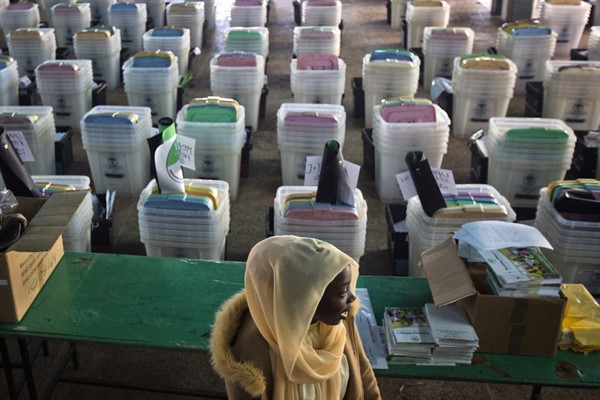Kenyans will head to the polls on Aug. 9 in a presidential election that, no matter how it turns out, will usher in a transition after President Uhuru Kenyatta’s two terms in office. Two figures have emerged as the main contenders to succeed him. Raila Odinga, a long-time opposition leader turned insider, has secured Kenyatta’s support as he stages his fifth bid for the presidency. Odinga will face Deputy President William Ruto, Kenyatta’s erstwhile ally who, despite a falling-out between the two in recent years, has fashioned a political base founded on a promise to more fairly redistribute the benefits of economic growth.
Kenyan elections are generally high-stakes affairs. Leading politicians often view the outcome as existential, whether to preserve their careers, protect their business interests or both. In December 2007, claims of electoral fraud in a context of fraught ethnic relations led to serious violence, which lasted until February 2008 and left over 1,000 people dead. Kenyatta and Ruto were both indicted at the International Criminal Court, or ICC, for the role they allegedly played in inciting the violence. They subsequently joined forces for Kenyatta’s two successful presidential bids in 2013 and 2017, but their seemingly irreparable relationship this time around could constitute the most significant threat to peaceful polls in August.
Kenya, however, has come a long way since 2007. Although intra-elite relations in the ruling party are severely strained, social tensions—including between ethnic groups—are at a low ebb. In fact, if anything, the public mood regarding the elections seems to be one of indifference. Voter registration among the youth has been remarkably low. Recent voter registration drives captured only 2.5 million voters, well below the 6 million that the electoral commission had envisioned; Kenya now has 22.1 million registered voters out of a population of about 55 million. The number of young voters, 18-35 years old, also dropped by just over 5 percent, indicating exhaustion among the public at the byzantine alliance-building among political elites and the consistent failure across administrations to deliver real change.

